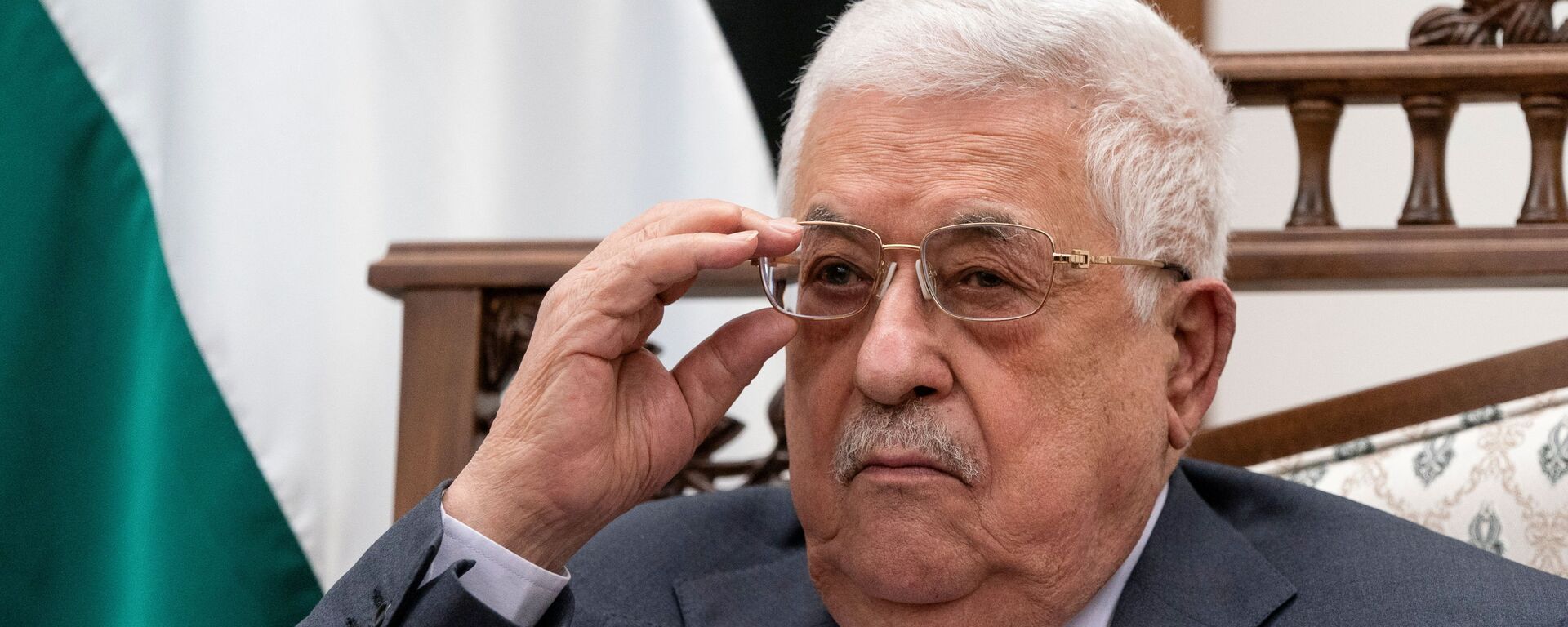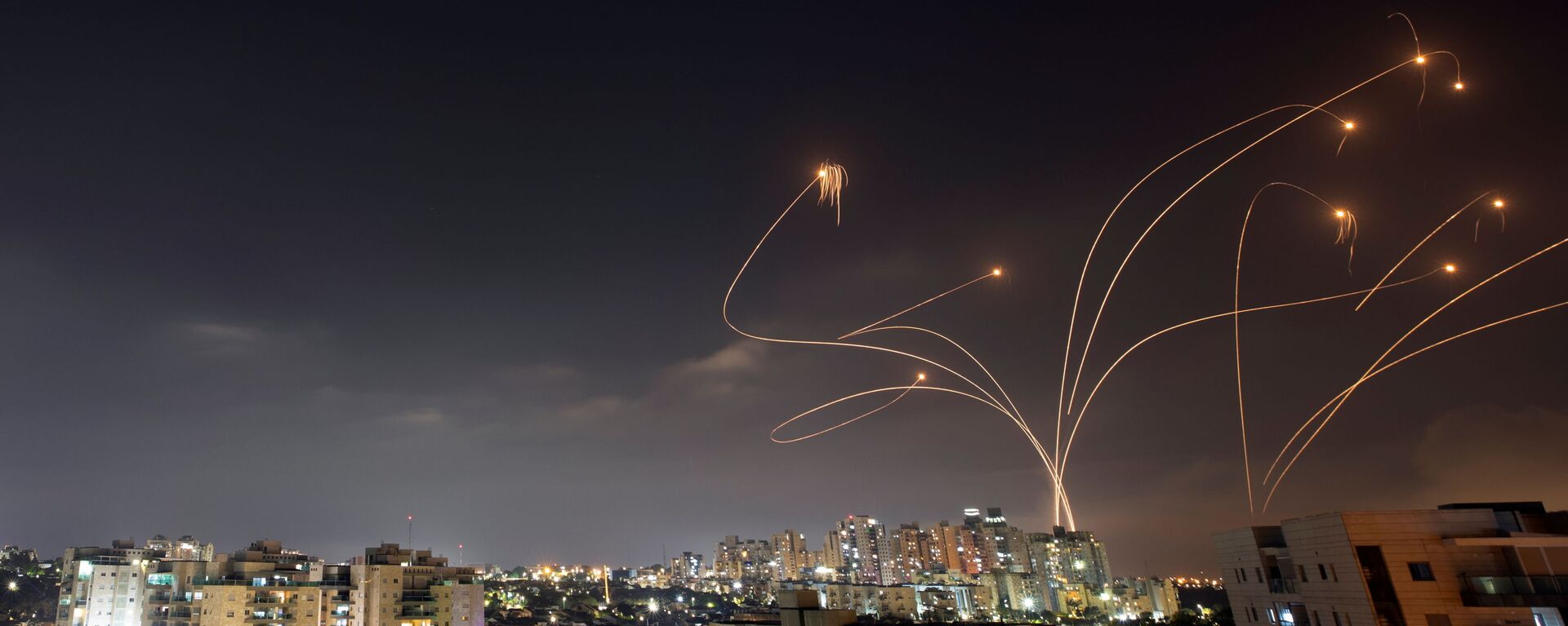https://sputnikglobe.com/20220103/pileups-of-batteries-poses-a-threat-to-gazans-but-hamas-has-no-plan-for-averting-the-crisis---1091989072.html
Pileup of Batteries Poses a Threat to Gazans But Hamas Has No Plans to Avert Crisis - Expert
Pileup of Batteries Poses a Threat to Gazans But Hamas Has No Plans to Avert Crisis - Expert
Sputnik International
As of today, the Strip contains more than 50,000 tons of broken lead acid batteries, and according to estimates they cause severe environmental and health problems
2022-01-03T07:00+0000
2022-01-03T07:00+0000
2023-12-05T09:22+0000
middle east
israel
gaza strip
https://cdn1.img.sputnikglobe.com/img/07e5/0b/13/1090853729_0:152:3072:1880_1920x0_80_0_0_0388d731830f1ff979af044ee7e01db7.jpg
For years, the residents of the Gaza Strip have been relying on batteries to overcome the acute power shortages that occur in the enclave for several hours a day.They have been using them to heat themselves, as well as to fuel lights and internet routers. But while one crisis has been mitigated, another one has been created.Means of PunishmentAhmed Helles, a Gaza-based environmentalist who is lecturing at Al Azhar University, says the Strip now has more than 50,000 tonnes of batteries. All of those have been accumulated since 2007, when Hamas, an Islamic group branded as terrorists by Israel, took over the enclave.Today, that waste is piling up in several locations across the Strip. Often times they are thrown onto the streets in densely populated areas. On other occasions, they are seen in farms and agricultural lands.Dangers to Health and EnvironmentLocal experts have long warned that those pileups are causing unavertable damage to the enclave's public health.According to Helles, more than 15,000 Gazans are suffering from various chest-related diseases. Many others experience shortness of breath.Gaza's environment has also been suffering. Batteries often contain such hazardous substances as nickel, lead, mercury and acid. When they break, those materials leak and contaminate the area's soil and water.The enclave's water supply has been a major headache for local authorities. Apart from the fact that its resources have been depleting, piles of waste have made it impossible to drink, and the presence of batteries around Gaza has only aggravated the situation.Who is to Blame?Although Helles blames Israel for the current crisis, he also says that Hamas has so far done nothing to improve the situation. No recycling plans have been thought of. No projects in this field have been promoted.The main reason for this is the lack of funds. The blockaded enclave has been suffering from an acute monetary crisis for years. Most of its funding originally came in from donations of rich donors, while other cash stemmed from the Palestinian Authority and taxes. The outbreak of the coronavirus pandemic in March 2020 has only made the situation worse, and the practical meaning of this has been that such projects as battery recycling have not topped the authorities' agenda.That situation has already prompted some Gazans to take matters into their own hands. While some collect those batteries and store them in "safe houses," others prefer to burn the pollutants, not realising the dire health repercussions such a move entails.The Gaza-based expert believes that the situation can still be managed but he also stresses that the only way out is through education and the application of law.
https://sputnikglobe.com/20211229/hamas-slams-pna-leader-abbas-for-meeting-israeli-defence-minister-for-first-time-in-10-years-1091884679.html
https://sputnikglobe.com/20210914/with-israel--hamas-locking-horns-again-a-gaza-based-expert-says-full-fledged-war-still-unlikely--1089052255.html
israel
gaza strip
Sputnik International
feedback@sputniknews.com
+74956456601
MIA „Rosiya Segodnya“
2022
News
en_EN
Sputnik International
feedback@sputniknews.com
+74956456601
MIA „Rosiya Segodnya“
Sputnik International
feedback@sputniknews.com
+74956456601
MIA „Rosiya Segodnya“
gaza strip
Pileup of Batteries Poses a Threat to Gazans But Hamas Has No Plans to Avert Crisis - Expert
07:00 GMT 03.01.2022 (Updated: 09:22 GMT 05.12.2023) As of today, the Strip contains more than 50,000 tonnes of broken lead acid batteries, and according to estimates they cause severe environmental and health-related problems. However, in order to cope with the issue, local authorities need funds, a rare commodity in the Strip.
For years, the residents of the Gaza Strip have been relying on batteries to overcome the acute power shortages that occur in the enclave for several hours a day.
They have been using them to heat themselves, as well as to fuel lights and internet routers. But while one crisis has been mitigated, another one has been created.
Ahmed Helles, a Gaza-based environmentalist who is lecturing at Al Azhar University, says the Strip now has more than 50,000 tonnes of batteries. All of those have been accumulated since 2007, when Hamas, an Islamic group branded as terrorists by Israel, took over the enclave.
"Before 2007, Israel used to import those batteries. They would recycle them and give them back to the Gazans. When Hamas seized power, Israel wanted to punish the group. Part of that punishment was banning the import of those batteries."
Today, that waste is piling up in several locations across the Strip. Often times they are thrown onto the streets in densely populated areas. On other occasions, they are seen in farms and agricultural lands.
Dangers to Health and Environment
Local experts have long warned that those pileups are causing unavertable damage to the enclave's public health.
According to Helles, more than 15,000 Gazans are suffering from various chest-related diseases. Many others experience shortness of breath.

29 December 2021, 12:04 GMT
Gaza's environment has also been suffering. Batteries often contain such hazardous substances as nickel, lead, mercury and acid. When they break, those materials leak and contaminate the area's soil and water.
The enclave's water supply has been a major headache for local authorities. Apart from the fact that its resources have been depleting, piles of waste have made it impossible to drink, and the presence of batteries around Gaza has only
aggravated the situation.
Although Helles blames Israel for the current crisis, he also says that Hamas has so far done nothing to improve the situation. No recycling plans have been thought of. No projects in this field have been promoted.
The main reason for this is the lack of funds. The blockaded enclave has been suffering from an acute monetary crisis for years. Most of its funding originally came in from donations of rich donors, while other cash stemmed from the Palestinian Authority and taxes. The outbreak of the coronavirus pandemic in March 2020 has only made the situation worse, and the practical meaning of this has been that such projects as battery recycling have not topped the authorities' agenda.

14 September 2021, 06:46 GMT
That situation has already prompted some Gazans to take matters into their own hands. While some collect those batteries and store them in "safe houses," others prefer to burn the pollutants, not realising the dire health repercussions such a move entails.
"There is very little awareness here. People dump those batteries on the streets or burn them, and the Hamas authorities do not fight back. They do not introduce penalties to those, who burn this hazardous material. Neither do they punish those, who keep on throwing batteries onto the streets and agricultural lands".
The Gaza-based expert believes that the situation can still be managed but he also stresses that the only way out is through education and the application of law.
"They need to use an iron fist when dealing with those, who contaminate the environment and risk public health. Because if they don't, pretty soon it might be too late".





